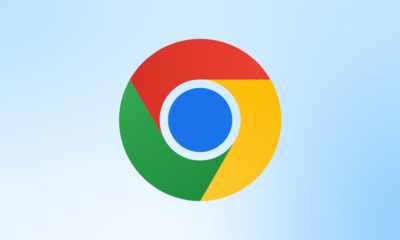SEO
How AI-generated images can streamline your SEO game with DALL-E 2

30-second summary:
- SEOs are always on the lookout for innovative technology that can help them amplify content creation effectively
- One such innovation that is on the cusp of being the next big thing in SEO and content creation is OpenAI’s DALL-E 2
- What is it, how does it work, and how can SEOs use it (or at least start experimenting with it)?
Have you ever wanted to feel like Salvador Dali? Maybe even create a small cute robot that could look like WALL-E? Your dreams very well might come true with the recent development of the technology behind AI. If that sounds interesting, let’s dive a bit deeper into this topic. Let’s talk about DALL-E 2.
Ok Google, what does AI Do?
Artificial intelligence (AI) aims to create unique algorithms that can behave like people in specific situations – recognize human speech and various objects, write and read texts, and the like. This technology is already far ahead of human capabilities in many spheres involving data processing. Until recently, AI was encroaching mainly on the fields that are linked with technical tasks – predictive analytics, robotization, image, and speech recognition. Today AI surpasses people by 40 percent on trivia.
But can AI also take on creative functions? It seems this is the last field to be mastered by neural networks. Art is a complicated combination of skill, creativity, and aesthetic taste, which all are very human elements. However, in April 2022, the OpenAI group proved otherwise by releasing a powerful text-to-image convertor, DALLE – 2, that can transform any text caption into a visual presentation that has never existed before. Its most winning feature is that the tool can precisely and logically convey relationships between objects it displays.
What is DALLE-2?
This neural network was created by OpenAI. Originally, it was GPT-2, a technology that could work with languages – answer questions, complete text, analyze content, and make conclusions. It was improved to GPT-3 – its capabilities expanded beyond textual information and enabled it to work with the images.
Already in January 2021, this technology was followed by its new mind-blowing version that could build a connection between text and images. This neural network was called DALLE. The most remarkable thing is that it can come up not only with objects known to us but also produce completely new combinations, creating objects that do not exist in nature. In simple words, DALLE is a transformer consisting of the decoder, which processes a sequence of 1280 tokens. These are 256 text tokens and 1024 image part tokens. The algorithm treats image regions in the same way as words in a text and generates new images identically to how GPT-3 generates new text. In 2022, the project was scaled to DALLE-2. The improved version creates an image just from a text prompt.
How does DALLE-2 work?
It is not the first attempt to create a text-to-image generation system. However, the capabilities of DALLE-2 are much broader. This neural network can effectively link textual and visual abstractions and provide a true-to-life image. How does the system know how a particular object is interacting with the environment? The algorithm is quite difficult to be explained in detail. Still, roughly it consists of several stages and uses other OpenAI models – CLIP (Contrastive Language-Image Pre-training) and GLIDE (Guided Language-to-Image Diffusion for Generation and Editing).
- Mapping the image description to its space presentation via the CLIP text encoder. CLIP is trained on hundreds of millions of images and their associated captions, figuring out how a particular piece of text relates to an image. The model does not predict the caption but learns how it is related to the image. This comparative approach allows establishing the relationship between textual and visual representations of the same abstract object. This stage is critical to the creation of images by the neural network.
- Encoding the CLIP-learned image. The next task is to create the image, the details of which have been suggested by CLIP. Now, DALLE-2 uses a modified version of another OpenAI model, GLIDE, to create this image. It is based on a diffusion model – data is generated by reversing the process of gradual image noise. The learning process is supplemented with additional textual information, which ultimately leads to the creation of more accurate images.
Based on the above, DALL-E 2 can generate semantically consistent images that naturally fit any object in the surrounding space.
DALLE-2 for SEO
The vast potential of AI image generation immediately attracted the attention of SEO specialists. They spend a lot of time finding appropriate pictures to support their text content. However, it becomes increasingly difficult to invent something that is not just copied and stitched together from the web. So DALLE-2 can become a great source of a never-ending flow of wholly unique and non-standard images. Interestingly, users will have exclusive rights to use the images they create, including for commercial use.
How it can help SEO
Nowadays, website and content promotion are not possible without attractive visuals. Images add more value to your SEO efforts – your site wins more user engagement and accessibility. But sourcing enough appropriate pictures has always been a headache. DALLE-2 can solve this task with ease. You just need to print a descriptive prompt of your future image, and AI will come up with a result. The text should not exceed 400 characters. But users should be ready to train a little to create explicit requests. It is highly advisable to study Prompt Book and master the basics to avoid weird results. You will learn the most valuable tips on how to get the most out of this fantastic image generator.
If you’d like to further automate your image creation process this tool will allow you to generate a prompt that can be used on DALLE-2.
Use cases (blog posts, product images, designs, digital art, thumbnails)
AI algorithms were already used in SEO before for naming objects on the images and creating descriptions for them based on data. With DALLE-2, this process is flipped around, and now you can generate images based on text prompts. No matter whether you are running an online blog or a store – you need lots of visuals to attract new customers and followers. And DALLE-2 can successfully be integrated into any project where you need image supplements – create illustrations for your blog posts, product descriptions, design sketches, and much more. Moreover, you can further modify already created images.
You can already see some successful use cases of DALLE-2.
- Blog thumbnail optimization. The Deephaven blog thumbnails have been replaced by images fully generated by DALLE-2. It took a couple of minutes and several prompts per image to get the desired result. However, it is a significant time saving compared to what would have been spent on the search for stock images. A nice bonus is that DALLE-2-generated images are fully unique and memorable.
- Design development. DALLE-2 can become an efficient tool in the design field. And it looks like its capabilities are endless. For example, a picture of the existing garden was taken, and a rectangular swimming pool was applied to it via DALLE-2. It helps the client envision how it might look in reality.
For more use cases and live community discussions join r/dalle.
Currently, users are just experimenting with DALLE-2, but there is no doubt it will be soon actively applied in business, architecture, fashion, and other spheres.
Examples of DALL-E 2
DALL-E 2 is launched in beta version with a credit-based model open to 100,000 users. Another million applicants are waiting for approval to test this AI product. Some users have already shared their first experience with the converter, and the results are impressive. DALL-E 2 processes the craziest requests and offers its interpretation. Here are a few examples:
A sad beaver in the sweater sitting in front of the screen and thinking about apples 😅
— Slava Grimalsky (@grimalsk) July 29, 2022
Prompt #1
A sad beaver in the sweater sitting in front of the screen and thinking about apples.

Source: Twitter
Prompt #2
A charcuterie board floating in a pool on the Amalfi coast.

Source: Twitter
Prompt #3
"The State of Connecticut Capitol as an oil painting by Matisse using purple and jade." #dalle2 @BetterLegal
Artwork for programmatic SEO is about to be next level! pic.twitter.com/64kKRY2Hpt
— Chad Sakonchick (@csakon) July 27, 2022
Source: Twitter
Prompt #4
A person in the space suit walking on Mars near the creator with dried-out grass and remnants of the Voyager.

Source: LinkedIn
Prompt #5
A Ukrainian on the field harvesting crops.
2 days ago I turned 30. I'm using this opportunity to raise money and help #Ukraine win. I know that a cup of coffee ($5) can save lives, and hoping that #TwitterFamily can help me with that. Digital art created by #dalle2 https://t.co/OV6Zq7NDIQ pic.twitter.com/wEQb6gouRI
— Dima Makei 🇺🇦 (@dima_makei) August 9, 2022
Source: Twitter
Conclusion
DALL-E 2 is a revolutionary text-to-image converter today. It will help you instantly generate a variety of unique images with only a short text prompt in failry shorter time spans than you would spend on photo stock sites. This technology is an absolute game changer and can rearrange a lot of things in SEO in the coming years. Yet, more live testing is still needed to benefit from DALL-E 2 to the fullest.
Dima Makei is Head of SEO at Omnicom Media Group. He is also passionate about teaching and has previously served as a Marketing Professor at Seneca College. Find him on Twitter @dima_makei.
Subscribe to the Search Engine Watch newsletter for insights on SEO, the search landscape, search marketing, digital marketing, leadership, podcasts, and more.
Join the conversation with us on LinkedIn and Twitter.



![How AEO Will Impact Your Business's Google Visibility in 2026 Why Your Small Business’s Google Visibility in 2026 Depends on AEO [Webinar]](https://articles.entireweb.com/wp-content/uploads/2026/01/How-AEO-Will-Impact-Your-Businesss-Google-Visibility-in-2026-400x240.png)
![How AEO Will Impact Your Business's Google Visibility in 2026 Why Your Small Business’s Google Visibility in 2026 Depends on AEO [Webinar]](https://articles.entireweb.com/wp-content/uploads/2026/01/How-AEO-Will-Impact-Your-Businesss-Google-Visibility-in-2026-80x80.png)














You must be logged in to post a comment Login